My, oh My.
I'm not even going to comment on this.
Thanks,
Preston
_________________
This from the Miami Herald
By BRENT KALLESTAD
Associated Press
TALLAHASSEE, Fla. -- When Gloria C. MacKenzie went to a Florida supermarket near Tampa last month to buy a Powerball ticket, another person in line did something nice for the 84-year-old widow.
"While in line at Publix, another lottery player was kind enough to let me go ahead of them in line to purchase the winning Quick Pick ticket," she said in a statement Wednesday.
The nice gesture turned out to be a life-changing one for MacKenzie and her family. She came forward Wednesday to claim the biggest undivided lottery jackpot in history, $590 million.
A retiree from Maine and a mother of four who lives in a modest, tin-roof house in Zephyrhills, Fla., where the lone winning ticket in the May 18 drawing was sold, MacKenzie took her prize in a lump sum of just over $370 million. After federal taxes, she is getting about $278 million, lottery officials said.
Wearing large sunglasses and dressed in a pink sweater and white pants, she clasped her son's arm after visiting the lottery offices as they made their way to a silver Ford Focus and left quickly. She did not speak to a crowd of reporters outside the building. She was accompanied at the lottery offices by two unidentified attorneys.
MacKenzie bought the winning ticket at a Publix supermarket in the town of about 13,300, which is 30 miles northeast of Tampa. It is best known for the bottled spring water that bears its name - and now, for one of the biggest lottery winners of all time.
The $590 million was the second-largest lottery jackpot in history, behind a $656 million Mega Millions prize in March 2012, but that sum was split, with three winning tickets.
MacKenzie let the lottery computers generate the numbers at random. She said she had previously bought four other tickets for the drawing.
"We are grateful with this blessing of winning the Florida Lottery Powerball jackpot," she said in a statement read by lottery officials. "We hope that everyone would give us the opportunity to maintain our privacy for our family's benefit."
The winner had 60 days to claim the prize. Lottery spokesman David Bishop said MacKenzie, her lawyers and her financial adviser spent about two hours going through the necessary paperwork.
"They had clearly been preparing for this. They took all this time to get everything in order," Bishop said.
Minutes after the announcement, a dozen reporters in Zephyrhills were camped outside MacKenzie's gray duplex, which backs up to a dirt alley and is across from a cow pasture.
Neighbors were surprised by her good fortune.
"She didn't say anything about it. She's so quiet and secluded. She's usually in the house," said James Hill. "I'm very happy for her. It couldn't have happened to a nicer person. She was always pleasant and smiling."
Another neighbor, Don Cecil, joked, "I hope she gets a better place to live."
MacKenzie's neighbors offered few details about her life. They said she mostly kept to herself, but they'd seen her take short walks along the street and exchanged pleasantries with her.
Her house, situated among mostly mobile homes and pre-fabricated houses, has a chain-link fence with a sheet-metal roof and an old TV antenna.
MacKenzie retired to Zephyrhills more than a decade ago from rural Maine with her husband, Ralph, who died in 2005.
Back in her hometown of East Millinocket, Maine, relatives and friends were surprised to hear of her good fortune.
Robert MacKenzie, Ralph's brother, said the couple met just after World War II after Ralph got out of the Navy. He went to work in the town's paper mill, laboring as a technician for almost four decades.
He said the couple raised four children in East Millinocket, a town of less than 2,000 people in northern Maine. A daughter and son still live in East Millinocket, another son lives in Florida and another daughter lives out of state, possibly in Massachusetts, he said.
Robert MacKenzie said he didn't know his sister-in-law had won until a reporter called him.
"Holy mackerel," he said when told of her winnings. He added: "It hasn't soaked in, but I'm happy for her. That would be great because she's a widow and she can have a nice home now."
One of the MacKenzies' daughters, Melinda "Mindy" MacKenzie, a high school teacher, still lives in the family home in East Millinocket in a quiet middle-class neighborhood of white clapboard houses.
Ralph MacKenzie enjoyed snowmobiling, hunting and fishing, said Andrew Hopkins, a retired high school teacher and assistant principal who taught some of the MacKenzie children.
"They were good people. That's about all I can tell you," said Hopkins, who lives across the street.
Read more here: http://www.miamiherald.com/2013/06/05/3434747/590-million-powerball-jackpot.html#storylink=cpy
A blog for lovers of the printed word (novels, short stories, poems--the Ing so to speak), popular film, politics, and casinos (the Bling).
Thursday, June 6, 2013
Monday, June 3, 2013
State Arcades Clash in Court over Video Gambling Machines
http://www.miamiherald.com/2013/05/31/3426897/state-arcades-clash-in-court-over.html
By Glenn Garvin ggarvin@MiamiHerald.com
Florida’s controversial new law on video gambling machines began what will undoubtedly be an epic voyage through the judicial system Friday, when attorneys for two Broward County arcades asked a federal judge in Fort Lauderdale to block enforcement of the measure.
U.S. District Judge James I. Cohn promised a ruling next week after a spirited 90 minutes of legal debate in his packed courtroom on whether the law is unconstitutionally vague or violates the rights of the machines’ customers.
The law was passed hurriedly in April after a scandal over political donations by so-called Internet cafes — where computers were set up for gambling — threatened to envelop the Legislature. Lawmakers outlawed “casino-style” games, limited prizes to a value of 75 cents, and made violation a second-degree felony punishable by a maximum 15-year prison sentence.
But the law’s broad provisions have apparently outlawed most of the machines at many gaming centers, ranging from the kiddie games at Chuck E. Cheese’s through young-adult watering holes like Dave & Buster’s and senior arcades where the elderly gather to play simulated video slot machines for 8 cents a pop.
The lawsuit that got its first hearing Friday was brought by owners of two senior arcades, which like hundreds of others around the state closed down after the law went into effect.
Their attorney, Fort Lauderdale constitutional expert Bruce Rogow, focused most of his attack on the new law’s failure to specify exactly what “casino-style games” are. He cited transcripts from hearings on the law in which legislators admitted they were leaving the term undefined and said the law contained “gray areas.”
“There is no definition of ‘casino-style games,’” Rogow argued, adding the term is so broad that an arcade owner could be arrested for owning a machine “because it has lights and a handle.” While the games in his clients’ arcades may look similar to Las Vegas video slot machines, he added, their internal workings are vastly different and allow players to exercise skills instead of relying on pure chance as casino machines do.
But Allen Winsor, defending the law on behalf of the Florida attorney general’s office, said plenty of laws don’t include detailed definitions. As long as they meet the legal standard of being understood by “an average person of ordinary intelligence,” he said, that’s good enough.
“You don’t have to have mathematical precision,” Winsor said. “There are limitations on the English language.”
The two sides also clashed over whether the law violates arcade customers’ freedom of association by, as Rogow contended, effectively closing the senior arcades. “You could make that same argument for a crack house,” retorted Barry Richard, attorney for the Seminole Indian tribe, which has intervened in the case on the state’s side to
protect its gambling interests.
By Glenn Garvin ggarvin@MiamiHerald.com
Florida’s controversial new law on video gambling machines began what will undoubtedly be an epic voyage through the judicial system Friday, when attorneys for two Broward County arcades asked a federal judge in Fort Lauderdale to block enforcement of the measure.
U.S. District Judge James I. Cohn promised a ruling next week after a spirited 90 minutes of legal debate in his packed courtroom on whether the law is unconstitutionally vague or violates the rights of the machines’ customers.
The law was passed hurriedly in April after a scandal over political donations by so-called Internet cafes — where computers were set up for gambling — threatened to envelop the Legislature. Lawmakers outlawed “casino-style” games, limited prizes to a value of 75 cents, and made violation a second-degree felony punishable by a maximum 15-year prison sentence.
But the law’s broad provisions have apparently outlawed most of the machines at many gaming centers, ranging from the kiddie games at Chuck E. Cheese’s through young-adult watering holes like Dave & Buster’s and senior arcades where the elderly gather to play simulated video slot machines for 8 cents a pop.
The lawsuit that got its first hearing Friday was brought by owners of two senior arcades, which like hundreds of others around the state closed down after the law went into effect.
Their attorney, Fort Lauderdale constitutional expert Bruce Rogow, focused most of his attack on the new law’s failure to specify exactly what “casino-style games” are. He cited transcripts from hearings on the law in which legislators admitted they were leaving the term undefined and said the law contained “gray areas.”
“There is no definition of ‘casino-style games,’” Rogow argued, adding the term is so broad that an arcade owner could be arrested for owning a machine “because it has lights and a handle.” While the games in his clients’ arcades may look similar to Las Vegas video slot machines, he added, their internal workings are vastly different and allow players to exercise skills instead of relying on pure chance as casino machines do.
But Allen Winsor, defending the law on behalf of the Florida attorney general’s office, said plenty of laws don’t include detailed definitions. As long as they meet the legal standard of being understood by “an average person of ordinary intelligence,” he said, that’s good enough.
“You don’t have to have mathematical precision,” Winsor said. “There are limitations on the English language.”
The two sides also clashed over whether the law violates arcade customers’ freedom of association by, as Rogow contended, effectively closing the senior arcades. “You could make that same argument for a crack house,” retorted Barry Richard, attorney for the Seminole Indian tribe, which has intervened in the case on the state’s side to
protect its gambling interests.
Esther Williams
Quote of the Day: Tuesday 4 June 2013: Even though I had a lucrative contract with MGM, I had a husband who was drinking and gambling our money away faster than I could make it.
Esther Williams
Barbarians Gamble
Quote of the Day: Monday 3 June 2013: Gambling is a disease of barbarians superficially civilized.
Dean Inge
T. Boone Pickens
Quote of the Day: Sunday 2 June 2013: I was very fortunate in my gene mix. The gambling instincts I inherited from my father were matched by my mother's gift for analysis.
T. Boone Pickens
Subscribe to:
Posts (Atom)
Lipshitz 6

Reading T Cooper for Christmas
Click Here to Purchase Lipshitz 6
Punk Blood

Jay Marvin
Click Here to Purchase Punk Blood
Breath, Eyes, Memory

Anonymous Rex
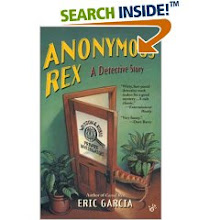
Reading Eric Garcia for Christmas
Click Here to Purchase Anonymous Rex
Vinegar Hill
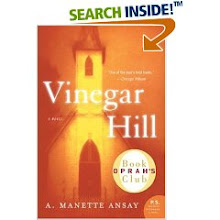
Reading A. Manette Ansay for Christmas
Click Here to Purchase Vinegar Hill
Nicotine Dreams

Reading Katie Cunningham for Christmas
Click Here to Purchase Nicotine Dreams
Junot Diaz
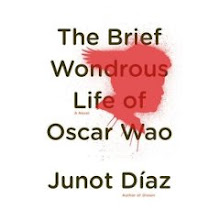
Pulitzer Prize Winner!!!
Click Here to Purchase The Brief Wondrous Life of Oscar Wao
Edwige Danticat

New Year's Reading
Click Here to Purchase Brother I"m Dying
Greed
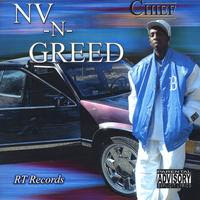
This Brother Is Scary Good
Sweet Music
One More Chance
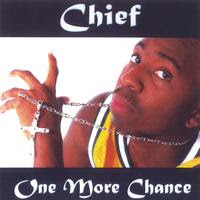
The genius Is At It Again/The Rapper CHIEF aka Sherwin Allen
Sandrine's Letter
Check out Sandrine's Letter To Tomorrow. You will like it, I insist.
Sandrine's Link
Cool Sites
- Akashic Books
- All or Nothing (My Other Blog)
- Asili The Journal
- Best Gamblling News Site
- Black Star Review
- Book Remarks
- Booktour.com
- Carolina Wren Press
- Click Here for Some Pretty Good Writing Contests
- Dedra Johnson
- Enrico Theoc
- Felicia Luna Lemus
- Florida Book Review
- Foreword Magazine
- Gambling Is Linked to Suicide
- Gambling Is Not Linked to Suicide
- Gaming Law Review
- Gene Durnell's The Thinking Journalist
- Gene Durnell's The Thinking Journalist
- Geoffrey Philp's Blog
- Get Chief's CDs on CD Baby
- Getting Past Gambling
- Gonzalo Barr's Blog
- Good Reads
- Hallema's Homepage
- Help With Gambling Addiction
- Jeremy Shipp's Website
- John Dufresne's Blog
- Leonard Nash Homepage
- Links to Seminole Casinos in Florida
- Martha Frankel's Homepage
- Michael A. Gonzales
- Miss Snark/ An Agent Gives Great Publishing Advice
- More Addiction Help
- No Gambling.com
- Pat MacEnulty
- ScrewIowa.com
- St. Louis Rams, The Greatest Show on Turf
- Suicide reference library
- T Cooper
- University of Florida
- Vicki Hendricks
- Walter Jacobs's Blog
- Writers Who Read
- Writing with Celia

All or Nothing

Editorial Reviews of All or Nothing
New York Times--". . . a cartographer of autodegradation . . . Like Dostoyevsky, Allen colorfully evokes the gambling milieu — the chained (mis)fortunes of the players, their vanities and grotesqueries, their quasi-philosophical ruminations on chance. Like Burroughs, he is a dispassionate chronicler of the addict’s daily ritual, neither glorifying nor vilifying the matter at hand."
Florida Book Review--". . . Allen examines the flaming abyss compulsive gambling burns in its victims’ guts, self-esteem and bank accounts, the desperate, myopic immediacy it incites, the self-destructive need it feeds on, the families and relationships it destroys. For with gamblers, it really is all or nothing. Usually nothing. Take it from a reviewer who’s been there. Allen is right on the money here."
Foreword Magazine--"Not shame, not assault, not even murder is enough reason to stop. Allen’s second novel, All or Nothing, is funny, relentless, haunting, and highly readable. P’s inner dialogues illuminate the grubby tragedy of addiction, and his actions speak for the train wreck that is gambling."
Library Journal--"Told without preaching or moralizing, the facts of P's life express volumes on the destructive power of gambling. This is strongly recommended and deserves a wide audience; an excellent choice for book discussion groups."—Lisa Rohrbaugh, East Palestine Memorial P.L., OH
LEXIS-NEXIS--"By day, P drives a school bus in Miami. But his vocation? He's a gambler who craves every opportunity to steal a few hours to play the numbers, the lottery, at the Indian casinos. Allen has a narrative voice as compelling as feeding the slots is to P." Betsy Willeford is a Miami-based freelance book reviewer. November 4, 2007
Publisher’s Weekly--"Allen’s dark and insightful novel depicts narrator P’s sobering descent into his gambling addiction . . . The well-written novel takes the reader on a chaotic ride as P chases, finds and loses fast, easy money. Allen (Churchboys and Other Sinners) reveals how addiction annihilates its victims and shows that winning isn’t always so different from losing."
Kirkus Review--"We gamble to gamble. We play to play. We don't play to win." Right there, P, desperado narrator of this crash-'n'-burn novella, sums up the madness. A black man in Miami, P has graduated from youthful nonchalance (a '79 Buick Electra 225) to married-with-a-kid pseudo-stability, driving a school bus in the shadow of the Biltmore. He lives large enough to afford two wide-screen TVs, but the wife wants more. Or so he rationalizes, as he hits the open-all-night Indian casinos, "controlling" his jones with a daily ATM maximum of $1,000. Low enough to rob the family piggy bank for slot-machine fodder, he sinks yet further, praying that his allergic 11-year-old eat forbidden strawberries—which will send him into a coma, from which he'll emerge with the winning formula for Cash 3 (the kid's supposedly psychic when he's sick). All street smarts and inside skinny, the book gives readers a contact high that zooms to full rush when P scores $160,000 on one lucky machine ("God is the God of Ping-ping," he exults, as the coins flood out). The loot's enough to make the small-timer turn pro, as he heads, flush, to Vegas to cash in. But in Sin City, karmic payback awaits. Swanky hookers, underworld "professors" deeply schooled in sure-fire systems to beat the house, manic trips to the CashMyCheck store for funds to fuel the ferocious need—Allen's brilliant at conveying the hothouse atmosphere of hell-bent gaming. Fun time in the Inferno.
Florida Book Review--". . . Allen examines the flaming abyss compulsive gambling burns in its victims’ guts, self-esteem and bank accounts, the desperate, myopic immediacy it incites, the self-destructive need it feeds on, the families and relationships it destroys. For with gamblers, it really is all or nothing. Usually nothing. Take it from a reviewer who’s been there. Allen is right on the money here."
Foreword Magazine--"Not shame, not assault, not even murder is enough reason to stop. Allen’s second novel, All or Nothing, is funny, relentless, haunting, and highly readable. P’s inner dialogues illuminate the grubby tragedy of addiction, and his actions speak for the train wreck that is gambling."
Library Journal--"Told without preaching or moralizing, the facts of P's life express volumes on the destructive power of gambling. This is strongly recommended and deserves a wide audience; an excellent choice for book discussion groups."—Lisa Rohrbaugh, East Palestine Memorial P.L., OH
LEXIS-NEXIS--"By day, P drives a school bus in Miami. But his vocation? He's a gambler who craves every opportunity to steal a few hours to play the numbers, the lottery, at the Indian casinos. Allen has a narrative voice as compelling as feeding the slots is to P." Betsy Willeford is a Miami-based freelance book reviewer. November 4, 2007
Publisher’s Weekly--"Allen’s dark and insightful novel depicts narrator P’s sobering descent into his gambling addiction . . . The well-written novel takes the reader on a chaotic ride as P chases, finds and loses fast, easy money. Allen (Churchboys and Other Sinners) reveals how addiction annihilates its victims and shows that winning isn’t always so different from losing."
Kirkus Review--"We gamble to gamble. We play to play. We don't play to win." Right there, P, desperado narrator of this crash-'n'-burn novella, sums up the madness. A black man in Miami, P has graduated from youthful nonchalance (a '79 Buick Electra 225) to married-with-a-kid pseudo-stability, driving a school bus in the shadow of the Biltmore. He lives large enough to afford two wide-screen TVs, but the wife wants more. Or so he rationalizes, as he hits the open-all-night Indian casinos, "controlling" his jones with a daily ATM maximum of $1,000. Low enough to rob the family piggy bank for slot-machine fodder, he sinks yet further, praying that his allergic 11-year-old eat forbidden strawberries—which will send him into a coma, from which he'll emerge with the winning formula for Cash 3 (the kid's supposedly psychic when he's sick). All street smarts and inside skinny, the book gives readers a contact high that zooms to full rush when P scores $160,000 on one lucky machine ("God is the God of Ping-ping," he exults, as the coins flood out). The loot's enough to make the small-timer turn pro, as he heads, flush, to Vegas to cash in. But in Sin City, karmic payback awaits. Swanky hookers, underworld "professors" deeply schooled in sure-fire systems to beat the house, manic trips to the CashMyCheck store for funds to fuel the ferocious need—Allen's brilliant at conveying the hothouse atmosphere of hell-bent gaming. Fun time in the Inferno.
At Books and Books
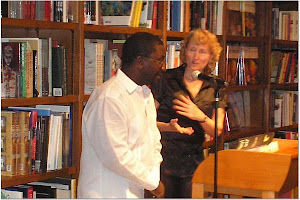
Me And Vicki at Our Reading
Bio
Preston L. Allen is the recipient of a State of Florida Individual Artist Fellowship in Literature and the Sonja H. Stone Prize in Fiction for his short story collection Churchboys and Other Sinners (Carolina Wren Press 2003). His works have appeared in numerous publications including The Seattle Review, The Crab Orchard Review, Asili, Drum Voices, and Gulfstream Magazine; and he has been anthologized in Here We Are: An Anthology of South Florida Writers, Brown Sugar: A Collection of Erotic Black Fiction, Miami Noir, and the forthcoming Las Vegas Noir. His fourth novel, All Or Nothing, chronicles the life of a small-time gambler who finally hits it big. Preston Allen teaches English and Creative Writing in Miami, Florida.